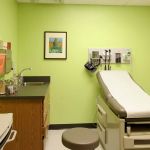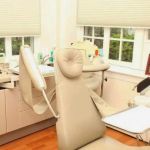Effective Sleep Apnea Treatment for People with Sleep Apnea and Liver Disease
- Understanding Sleep Apnea and Liver Disease
- Challenges of Treating Sleep Apnea in Liver Disease Patients
- Treatment Options for Sleep Apnea and Liver Disease
- Lifestyle Changes and Home Care Strategies
- Seeking Professional Care for Sleep Apnea and Liver Disease
1. Understanding Sleep Apnea and Liver Disease
Sleep apnea is a serious sleep disorder characterized by repeated interruptions in breathing during sleep. These interruptions can cause a range of health issues, including daytime fatigue, cardiovascular problems, and metabolic changes. For individuals with liver disease, sleep apnea can complicate existing health conditions, as both conditions share common risk factors such as obesity and poor liver function.
Liver disease, on the other hand, refers to a range of conditions that affect the liver, including cirrhosis, hepatitis, and fatty liver disease. The relationship between sleep apnea and liver disease is complex, with studies showing that liver disease can exacerbate sleep apnea symptoms, and vice versa. People with liver disease often experience higher levels of nighttime oxygen desaturation, making effective treatment crucial for managing both conditions simultaneously.
2. Challenges of Treating Sleep Apnea in Liver Disease Patients
2.1 Impact of Liver Disease on Sleep Apnea Treatment
One of the main challenges in treating sleep apnea in individuals with liver disease is the impact that liver function has on the metabolism of medications used for sleep apnea treatment. For instance, sedatives, often prescribed to help improve sleep, can have a stronger effect on people with liver disease, leading to potential risks such as increased sedation or respiratory depression.
css复制2.2 Limited Options for Sleep Apnea Devices
Continuous Positive Airway Pressure (CPAP) machines are commonly used to treat sleep apnea, but for individuals with liver disease, especially those with cirrhosis or severe liver damage, using a CPAP machine may be less effective or even uncomfortable due to bloating, abdominal pressure, or discomfort. This makes it essential to explore alternative therapies or modifications to CPAP settings to address both conditions without exacerbating liver issues.
3. Treatment Options for Sleep Apnea and Liver Disease
3.1 CPAP Therapy with Adjustments
For individuals with sleep apnea and liver disease, CPAP therapy can still be effective if carefully monitored. Doctors may adjust the pressure settings on CPAP machines to minimize discomfort caused by liver-related bloating or abdominal pressure. In some cases, bile acids and enzymes may be prescribed to improve liver function, which can indirectly help reduce some of the discomfort experienced with CPAP use.
vbnet复制3.2 BiPAP (Bilevel Positive Airway Pressure) Therapy
BiPAP therapy, a variation of CPAP, is an alternative treatment for those who find CPAP uncomfortable. Unlike CPAP, which delivers a constant stream of air, BiPAP delivers air at two different pressures: one for inhalation and one for exhalation. This may be more tolerable for individuals with liver disease, as it may reduce the feeling of pressure on the abdomen while still providing adequate airflow to prevent apneas.
3.3 Adaptive Servo-Ventilation (ASV)
For patients with complex sleep apnea, including those with both obstructive and central sleep apnea, Adaptive Servo-Ventilation (ASV) may be recommended. ASV is a more advanced form of therapy that adjusts pressure in real time based on the patient's breathing patterns, offering a customized approach to managing sleep apnea in individuals with liver disease.
4. Lifestyle Changes and Home Care Strategies
4.1 Weight Management
One of the most important lifestyle changes for managing both sleep apnea and liver disease is weight management. Excess weight, especially around the abdomen, can worsen both conditions by increasing abdominal pressure and obstructing airflow. Maintaining a healthy weight through diet and exercise is crucial for improving sleep apnea symptoms and supporting liver function.
vbnet复制4.2 Avoiding Alcohol and Sedatives
Individuals with liver disease should avoid alcohol and sedatives, as these substances can worsen both liver function and sleep apnea symptoms. Alcohol can increase the likelihood of airway collapse during sleep, while sedatives may exacerbate the central nervous system depression in people with liver disease. It's important to adopt a lifestyle that promotes natural, restful sleep without relying on substances that can complicate existing health problems.
4.3 Sleep Positioning
For many people with sleep apnea, sleeping on the back can exacerbate symptoms. Sleeping on the side, or using a special pillow to elevate the head, can help prevent airway obstruction and improve airflow. Combining proper sleep positioning with lifestyle changes like weight loss and exercise can significantly reduce the severity of sleep apnea in individuals with liver disease.
5. Seeking Professional Care for Sleep Apnea and Liver Disease
It is essential for individuals with both sleep apnea and liver disease to work closely with healthcare professionals. A multidisciplinary approach involving pulmonologists, sleep specialists, and hepatologists can help tailor a treatment plan that addresses both conditions. Regular monitoring and adjustments to therapy are crucial for ensuring long-term health and improving quality of life.
If you're struggling with sleep apnea and liver disease, it's important to schedule regular check-ups with your healthcare provider to discuss your treatment options. Early intervention and personalized care can help prevent complications and improve your overall health.







 Equitas Health Short North Medical Center3.0 (96 review)
Equitas Health Short North Medical Center3.0 (96 review) Dr. Angela M. Stout5.0 (2 review)
Dr. Angela M. Stout5.0 (2 review) Newport Dental & Orthodontics4.0 (166 review)
Newport Dental & Orthodontics4.0 (166 review) Van Nuys Dental Care4.0 (23 review)
Van Nuys Dental Care4.0 (23 review) MapleTree Pediatric Dentistry4.0 (102 review)
MapleTree Pediatric Dentistry4.0 (102 review) Lakewood Dentistry & Orthodontics4.0 (64 review)
Lakewood Dentistry & Orthodontics4.0 (64 review) The Importance of Oral Health Education During Pregnancy for a Healthy Pregnancy
The Importance of Oral Health Education During Pregnancy for a Healthy Pregnancy Best Tips for Brushing Your Teeth Properly for Healthy Gums: Essential Techniques for Oral Health
Best Tips for Brushing Your Teeth Properly for Healthy Gums: Essential Techniques for Oral Health Why Skipping Dental Checkups Can Lead to Bigger Oral Health Problems
Why Skipping Dental Checkups Can Lead to Bigger Oral Health Problems Advantages of Porcelain Dental Restorations
Advantages of Porcelain Dental Restorations How Can Diabetes Cause Tooth and Gum Problems? Preventing and Managing Oral Health Issues
How Can Diabetes Cause Tooth and Gum Problems? Preventing and Managing Oral Health Issues Healthy Habits for Promoting Good Oral Health and Hygiene: Tips for a Healthy Smile
Healthy Habits for Promoting Good Oral Health and Hygiene: Tips for a Healthy Smile